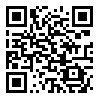مجله رویش روانشناسی از دادن گواهیهای کاغذی معذور است. لطفا تقاضا نکنید. همه گواهی ها در صفحه شخصی کاربران موجود است.
year 12, Issue 11 (Winter 2024 2024)
Rooyesh 2024, 12(11): 43-52 |
Back to browse issues page
Ethics code: (IR.UT.PSYEDU.REC.1400.078
Clinical trials code: IRCT20211214053413N1
Download citation:
BibTeX | RIS | EndNote | Medlars | ProCite | Reference Manager | RefWorks
Send citation to:



BibTeX | RIS | EndNote | Medlars | ProCite | Reference Manager | RefWorks
Send citation to:
Pourhossein R, Alipour A, Afrooz G A, Jalali A. (2024). The effectiveness of the stress management method based on the cognitive behavioral approach and self-care training and the combination of both on the health status of people with type 2 diabetes. Rooyesh. 12(11), 43-52.
URL: http://frooyesh.ir/article-1-4111-en.html
URL: http://frooyesh.ir/article-1-4111-en.html
1- Associate Professor of Psychology, University of Tehran, Tehran, Iran. , prhosein@ut.ac.ir
2- Professor, Department of Psychology, Payam Noor University, Tehran, Iran.
3- Professor, Department of Psychology, Faculty of Psychology and Educational Sciences, University of Tehran, Tehran, Iran.
4- Ph.D. Student, Health Psychology, University of Tehran Kish International Campus, Kish, Iran.
2- Professor, Department of Psychology, Payam Noor University, Tehran, Iran.
3- Professor, Department of Psychology, Faculty of Psychology and Educational Sciences, University of Tehran, Tehran, Iran.
4- Ph.D. Student, Health Psychology, University of Tehran Kish International Campus, Kish, Iran.
Abstract: (1319 Views)
In diabetes, stress lack of adherence to therapy, and poor self-care can worsen the condition of the affected people. Therefore, the study aimed to determine the effectiveness of stress management methods based on cognitive behavioral approach and self-care training and the combination of both on health status in people with type 2 diabetes. The present study is a randomized four-group double-blind clinical trial. The research sample included 60 people with type 2 diabetes selected purposefully among the members of the Diabetes Association and Private offices in Kerman City. The participants, after matching in terms of age and gender, were randomly replaced into 4 groups of 15 people (group 1: stress management based on cognitive-behavioral therapy, group 2: self-care training, group 3: stress management based on cognitive-behavioral therapy + self-care training, the control group: without any intervention) and the experimental groups received the relevant interventions in 8 sessions and the control group did not receive any intervention. Pre-test, post-test, and 2-month follow-up of the members of all 4 groups were performed by health status questionnaire from the World Health Organization. According to the results of the SPANOVA analysis, the mean scores of health status in the post-test and follow-up phases were increased compared to the pre-test phase and the occurred increase remained stable until the follow-up phase. Conclusion: According to the findings of the study, the combination of medical and psychological interventions is necessary to improve the health status and stability of the obtained results.
Type of Article: Research |
Subject:
Health
Received: 2022/08/22 | Accepted: 2023/08/29 | ePublished: 2024/01/28
Received: 2022/08/22 | Accepted: 2023/08/29 | ePublished: 2024/01/28
Send email to the article author
| Rights and permissions | |
 |
This work is licensed under a Creative Commons Attribution-NonCommercial 4.0 International License. |





